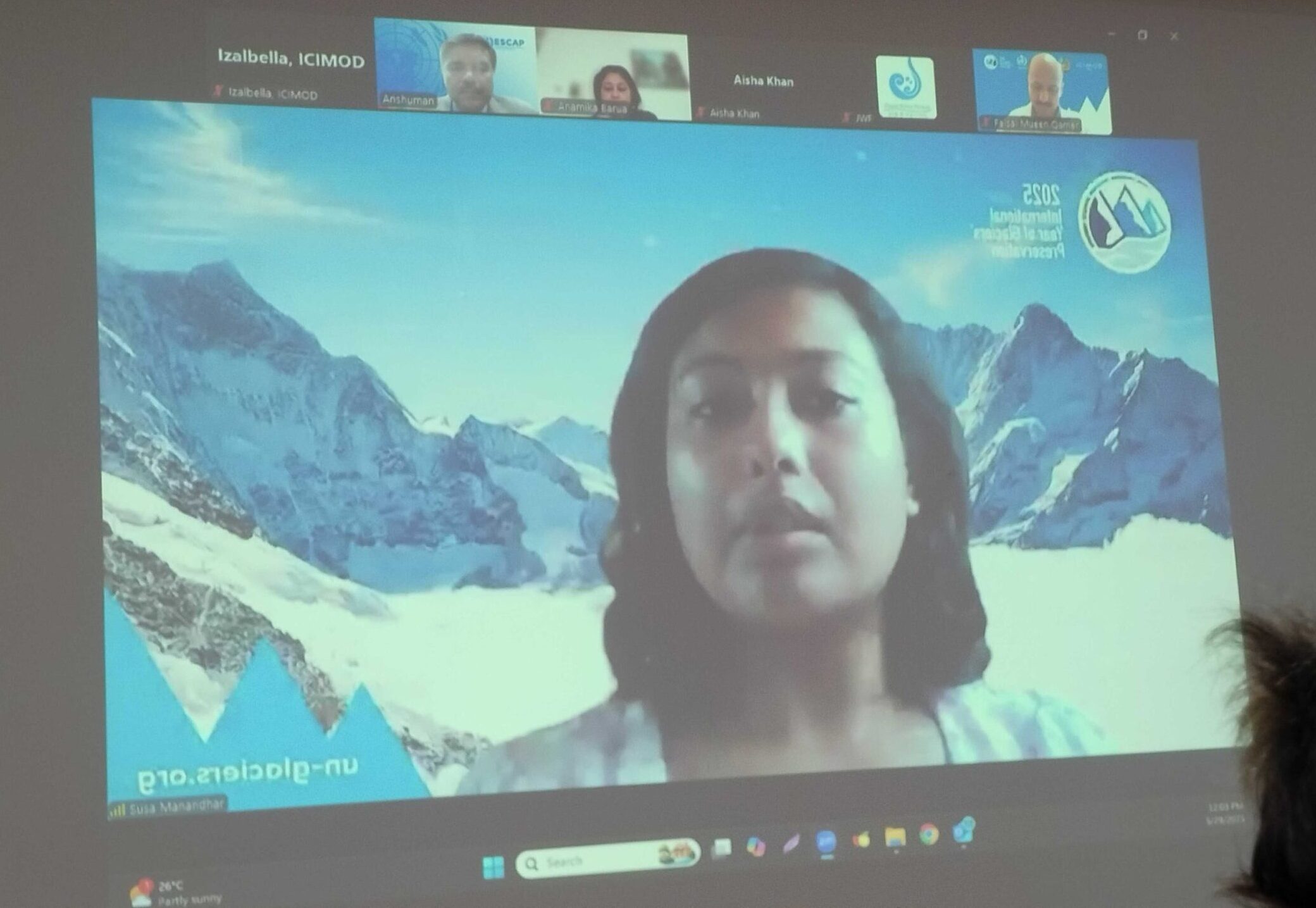Nepal National Water and Weather Week 2021 (NNWWW-2021) began with a three-day online training program, ‘Women in STEM: Application of Open Access Tools for Water Resource Management’. The Small Earth Nepal (SEN) in collaboration with WaterAid Nepal organized this program during 17-19 March 2021 to encourage the participation of women across the country in learning the in-depth concepts of water resource management in the context of climate change, and to empower women in the application of free and open-source tools and data for water resource management.
There were altogether 23 female trainees, who are undergraduate and graduate students, and early career professionals, and 9 trainers. The program was a combination of presentations, demonstrations, and breakout sessions for hand-on-exercises. Moderated by Piyush Dahal (Assistant Research Director at SEN) and Nicky Shree Shrestha (Secretary at SEN), the program began with opening remarks by Tripti Rai (Country Representative of WaterAid Nepal) and Sagar Kumar Rai (Secretary of Water and Energy Commission Secretariat).
A team of water resources experts including Dr. Dhiraj Pradhananga (President at SEN), Dr. Vishnu Prasad Pandey (Professor at Tribhuvan University), Dr. Soni M Pradhanang (Professor at the University of Rhode Island), and Dr. Kabir Rasouli (Researcher at the University of British Columbia) presented their research works and detailed information on cold region hydrology, hydrological responses to climate change, open-source data and models for water resource management, and advances in predicting and diagnosing hydrological changes.
GIS and remote sensing experts, Piyush Dahal and Nammy Hang Kirat (Research Coordinator of SEN) introduced the participants to the application of Sentinel Hub EO browser for Earth observation; GEE concepts, functions, and benefits in terms of storage, real-time access, processing capacity, and infrastructure with demonstrations of its applications on climate data analysis.
Nimisha Wagle (Survey Officer at Government of Nepal), Beatrice Gordon (Ph.D. scholar at the University of Nevada), and Austen Lorenz (Geographer with the United States Geological Survey) shared their research experiences on remote sensing data analysis using GEE.
With an overview of GEE, the breakout sessions allowed the participants to discuss and apply GEE to generate temporal changes in snow and ice cover and disaster occurrence, and precipitation analysis. The breakout sessions were then followed by the presentation session where the participants discussed the results of the assignments and shared reflections on their learning. The program concluded with online certificate distribution and the formation of a participant network for post-training follow-ups. Click here for the list of participants.




